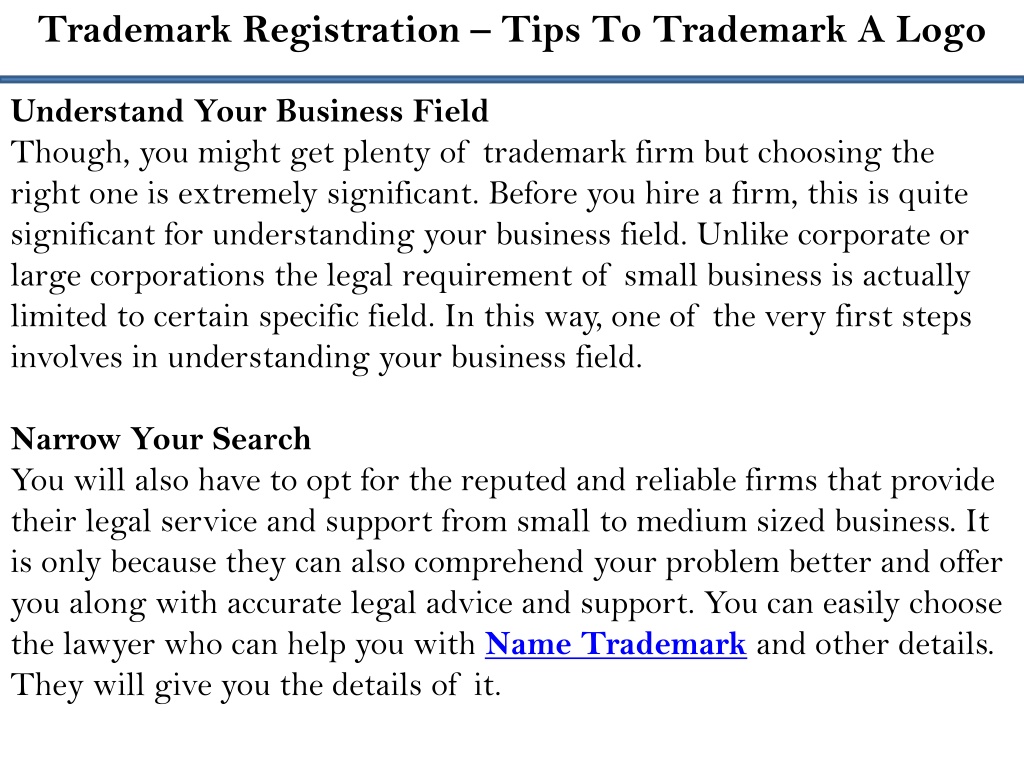
What is the Role of a Trademark Attorney in Protecting Intellectual Property?
In the ever-evolving world of commerce and innovation, the protection of intellectual property becomes not just a legal matter but also an essential strategic component for any business aiming to safeguard its competitive advantage. That's where California trademark attorneys come in! They play a pivotal role in ensuring that the unique symbols, names, and signs which distinguish goods or services get the necessary legal shield. Now, you might wonder (and rightly so), what exactly does a trademark attorney do? Well, their job is multifaceted. First off, they are tasked with advising clients on various aspects of trademark law. This includes selecting potential trademarks that won't step on anyone else's intellectual toes – after all, no one wants an infringement lawsuit knocking at their door! Once a suitable mark is picked out, they handle the complex process of trademark registration. It's no walk in the park; this involves conducting thorough searches to make sure there isn't anything too similar already out there – imagine the confusion if every other product had a nearly identical name or logo! Then comes the preparation and submission of detailed applications to register the mark with relevant authorities.
read more →
How to Choose the Right Trademark Attorney for Your Brand Protection Needs
Choosing the right trademark attorney for your brand protection needs can be a bit of a daunting task, I'll tell ya. It's not just about finding someone who knows their stuff; it's also about finding someone you can trust with the very identity of your business! Now, let's dive in and see what we should look out for. First things first, qualifications are key (and I'm not just talking about having a fancy degree hanging on the wall). Your trademark attorney should have a solid background in intellectual property law – that goes without saying. But don't stop there; they need to have specific experience with trademarks too. And by experience, I mean real-world, roll-up-the-sleeves-and-get-dirty kind of work. Ask 'em about cases they've handled, eh? See if they’ve been through the trenches. Now hold on a second - it’s easy to get swept up by someone who talks a good game but remember: communication is as important as competence. You want an attorney who doesn’t just nod along but actually gets what you’re trying to say (even when you're not quite sure yourself). Someone who listens before they leap into legal jargon that could
read more →
How to Successfully Navigate Trademark Registration
Navigating the complexities of trademark registration can be a daunting task, especially if you're diving into the legal waters for the first time. But fear not! With an experienced trademark attorney by your side, you can make this journey much less intimidating - and here's how. Firstly, it's essential to understand that trademark law is no piece of cake (I mean, why would it be?). That's precisely why getting an attorney who's been through these trenches before isn't just helpful; it's practically a must. They know the ins and outs of the process like the back of their hand! The starting point? Your attorney will conduct a thorough search to ensure that your desired mark isn't stepping on anyone else’s toes. You wouldn't want to invest in a brand only to find out you're infringing on someone else's rights, now would you? Once you've got the all-clear, drafting the application comes next. This might sound simple enough but don’t be fooled; it requires a keen eye for detail and an understanding of legal nuances that could easily trip up even the sharpest minds among us. And here’s
read more →
Do I need a lawyer to register a trademark?
When it comes to selecting or using a trademark, ignorance is not bliss. Fortunately, intellectual property law attorney wilson offers a refreshingly well-written and candid introduction to trademark protection. While discouraging nonspecialists from trying to register a trademark, she spells out reasons why the patent & trademark office (pto) rejects applications, provides tips for creating trademarks, and lists pitfalls to watch out for when using or licensing a trademark. Wilson's chapter on finding, evaluating, and working with an attorney provides excellent guidelines for anyone in need of legal services (also including eight warning signs of a bad lawyer and what to do about them). Well, google has answers to almost everything and you can even visit your local library on trademarks, but an attorney has all the experience needed to register and use a trademark. The early stages of application are important and mistakes can cost you the trademark. If you are wondering where to get the best attorney from, fret not, check out the us patent and trademark website today. The list of the best and the most experienced lawyers is available there. How long does a trademark for my business name last? By
read more →
4. File the Application
A trademark application cannot be filed for “everything”, as a “general brand” or to “prevent others from registering a similar trademark”. There is no such thing as an umbrella trademark that will cover everything under the sun. If you are an amazon seller and don’t know what you are going to sell, you will need to go back to the drawing board and come up with a business plan for the next year or two. Once you know what products you will be selling, you can file a trademark application. Both the u. S. Trademark office and canadian trademark office require trademark applicants to list and describe all products (and services) that are sold or plan to be sold when applying for a trademark registration. Our clients often ask if they can do preliminary trademark searches themselves. The answer, of course, is "yes, but. ". It's a good idea for you to do a search before you adopt a mark. Chances are, your first choice or two will be taken, so a little investment in your time now will save you a lot of time and money later on. There's no point in paying us to file an application
read more →
1. Decide if You Need a Trademark
As you search, decide whether you think your trademark conflicts with any of the trademarks in our database by creating a likelihood of confusion. For some trademarks, you’ll need to do some research to help make your decision. You can click on any trademark in your search results to learn more about it in the trademark status and document retrieval (tsdr) system. In tsdr, you’ll find more details about the trademark and all the documents we have in our records. Sometimes, you’ll need to do further research outside of our system to help you decide whether your trademark creates a likelihood of confusion with someone else’s trademark. 5. Register your trademark for market protection: once you have decided on a distinct and marketable brand name, consider registering it with the controller general of patents, designs and trade marks (cgpdtm) which grants trademark registration in india. By registering your trademark, you safeguard your brand from possible future litigation. It also helps to maintain your brand distinct and prevents it from becoming generic over time. Seek the advice of a trademark attorney for proper and effective trademark registration while navigating the legal process's complexities. 6. Trademark registration
read more →
How To Trademark A Name (2024 Guide)
trademark clearance searches are risk mitigation tools. Regardless of whether a company name is available in delaware, or whether no one seems to have ever heard of your newly proposed trademark, whenever you have a new name that is customer facing it is best practice to have a trademark clearance search performed. That new name could be a new company name, or a product or service name. Most of the time, the clearance search will either identify major problems with taking on a name for a company that would expose you to trademark infringement scenarios, or the clearance search will identify a number of close but not quite the same marks owned by others that will inform you of potential risks, so you do not march forward completely blind. The trademark registration process isn’t too complicated; it merely requires attention and focus. If you take care of all possible points of contest, your application should be good to go. With every angle covered, you could receive the registration well within a year. Trademark engine is here to assist you through every step if you want professional help to guide you through the process. Learn more about our trademark
read more →